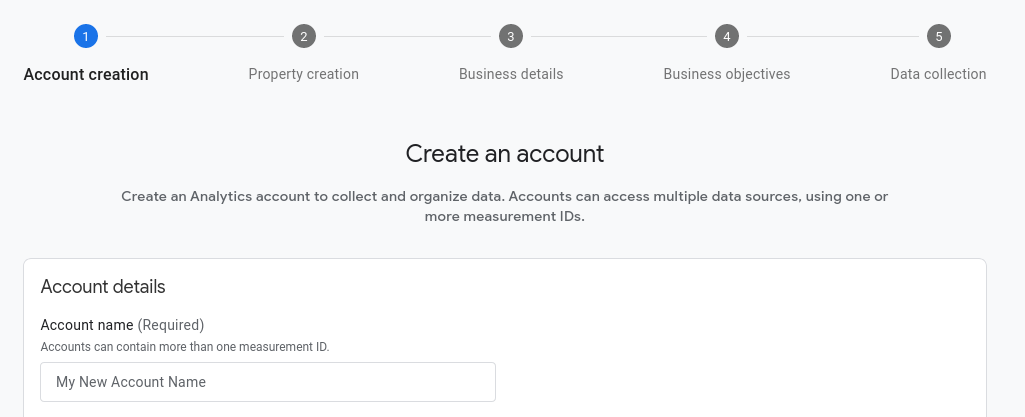SEO Ranking -Definition, Importance And Methods
Last Updated :
06 Feb, 2024
SEO ranking is a numerical representation of a webpage’s or website’s position in the search engine results for a specific keyword or query. Search engines, like Google, rank pages based on their perceived relevance and quality in response to a user’s search.
What Is SEO Ranking?

website ranking
SEO (Search Engine Optimization) ranking refers to the position of a webpage or website in the search engine results pages (SERPs) for a particular query or keyword. When someone enters a search query into a search engine like Google, the search engine uses a complex algorithm to determine the relevance and quality of web pages in its index. The pages that best match the query and meet certain criteria are ranked and displayed in the search results.
SEO ranking is crucial for website visibility and traffic. The higher a webpage ranks in the search results, the more likely it is to be clicked on by users. SEO efforts involve optimizing various aspects of a website, such as content, structure, and technical elements, to improve its visibility and increase the likelihood of ranking higher in search engine results.
How Search Engine Ranks Pages?
Search engines use complex algorithms to rank pages and determine the order in which they appear in the search engine results pages (SERPs). While the exact details of these algorithms are proprietary and constantly evolving, several key factors influence how search engines rank pages. Here are some essential elements:
- Relevance to Search Query:
- Search engines aim to provide the most relevant results for a user’s query. The content of a page is evaluated to determine how well it matches the search terms.

Relevent Queries To Search
- Content Quality:
- High-quality, informative, and well-written content is favored. Search engines assess the depth, relevance, and originality of the content on a page.
- Keywords:
- Keywords play a crucial role in SEO. Search engines analyze keywords’ presence, frequency, and placement on a page to assess their relevance to a search query.

Keyword Example
- Backlinks:
- The number and quality of links pointing to a page influence its authority and credibility. Quality backlinks from reputable websites are considered a positive signal.

Backlinks In SEO
- User Experience:
- Factors like page load speed, mobile responsiveness, and overall user experience contribute to a page’s ranking. Search engines prioritize pages that provide a smooth and positive user experience.
- Technical SEO:
- Technical aspects, such as proper HTML markup, meta tags, and a well-organized site structure, contribute to a page’s crawlability and indexability by search engines.

- Social Signals:
- While the direct impact of social signals (social media engagement) on rankings is debated, there is evidence that social sharing and visibility can indirectly influence a page’s performance.

GFG Social Handles
- User Behavior:
- Metrics like click-through rate (CTR), bounce rate, and dwell time (the time users spend on a page) can indicate the relevance and quality of a page. Search engines may use these metrics to adjust rankings.
- Freshness of Content:
- For certain queries, search engines may prioritize recently updated or published content. Keeping content fresh and up-to-date can positively impact rankings.
- Geographical Relevance:
- Local search results consider the geographical relevance of content, especially for location-based queries. This is important for businesses with a local presence.
Why SEO Ranking is Important?
SEO ranking is important for several reasons, and it plays a crucial role in the success of websites and online businesses. Here are some key reasons why SEO ranking is important:
- Increased Visibility and Traffic:
- Higher SEO rankings mean better visibility in search engine results. When your website appears on the first page of search results, it is more likely to be seen and visited by users searching for relevant information or products. Increased visibility leads to more organic traffic.
- Credibility and Trust:
- Websites that appear at the top of search results are often perceived as more credible and trustworthy by users. Many people trust search engines to deliver the most relevant and authoritative results, so a high SEO ranking can positively impact your brand’s credibility.
- Better User Experience:
- SEO practices often involve improving the overall user experience of a website. This includes optimizing page speed, creating high-quality content, and ensuring a mobile-friendly design. A positive user experience can lead to higher engagement and satisfaction, contributing to improved SEO rankings.
- Competitive Advantage:
- In competitive industries, a higher SEO ranking can provide a significant competitive advantage. Users are more likely to click on and engage with websites that appear at the top of search results, making it crucial for businesses to optimize their online presence.
- Increased Conversions:
- Websites with higher SEO rankings tend to experience higher conversion rates. When your content is relevant to users’ queries and provides valuable information, it increases the likelihood of converting visitors into customers, subscribers, or leads.
- Cost-Effectiveness:
- Organic traffic generated through SEO is generally considered more cost-effective than paid advertising. While it requires time and effort to optimize for search engines, the long-term benefits can result in sustained traffic without ongoing advertising expenses.
- Adaptation to User Behavior:
- With the increasing reliance on search engines to find information, products, and services, it’s essential for businesses to adapt to user behavior. A strong SEO strategy ensures that your website aligns with how users search for and consume content online.
- Global Reach or Local Targeting:
- SEO allows businesses to reach a global audience or target specific local markets based on their optimization strategies. Local businesses, in particular, benefit from local SEO efforts, helping them connect with customers in their geographical area.
- Analytics and Insights:
- SEO tools provide valuable analytics and insights into user behavior, keyword performance, and other crucial metrics. This data allows businesses to make informed decisions, refine their strategies, and continuously improve their online presence.
- Adaptation to Algorithm Changes:
- Search engines frequently update their algorithms to deliver more relevant and high-quality results. A well-optimized website is more likely to adapt to these changes, ensuring its continued visibility and success.
There are numerous tools available to help website owners, digital marketers, and SEO professionals track, analyze, and optimize their SEO efforts. These tools provide insights into various aspects of a website’s performance, including keyword rankings, backlink analysis, site audit, and more. Here are some popular SEO ranking tools:
- Google Analytics:
- Google Analytics is a free tool that provides detailed statistics and analytics for websites. It offers information about website traffic, user behavior, and conversion metrics, allowing users to measure the impact of their SEO efforts.

Google Analytics
- Google Search Console:
- Another free tool from Google, Search Console helps website owners monitor and optimize their site’s presence in Google search results. It provides insights into search performance, indexing status, and issues that may affect rankings.

Google Search Console
- Semrush:
- Semrush is a comprehensive SEO and digital marketing tool that offers features such as keyword research, backlink analysis, site audit, and competitor analysis. It helps users identify opportunities to improve their SEO strategies.

SEMrush Tools
- Ahrefs:
- Ahrefs is known for its robust backlink analysis capabilities. It provides insights into a website’s backlink profile, competitor backlink analysis, keyword research, and rank tracking.

Ahref Tools
- Moz:
- Moz offers a suite of SEO tools, including Moz Pro for keyword research, site audits, and rank tracking. Moz’s tools are widely used for their accuracy and usability.

Moz
- Yoast SEO:
- Yoast SEO is a popular WordPress plugin that assists with on-page SEO. It provides real-time content analysis, helps optimize content for target keywords, and improves the overall readability of articles.
- SpyFu:
- SpyFu specializes in competitor analysis. It allows users to view their competitors’ keywords, ad campaigns, and organic search rankings. This information can be valuable for developing a competitive SEO strategy.

SpyFu tool
How To Improve SEO Ranking?
Improving SEO ranking involves a combination of on-page and off-page optimization strategies. Here are some key practices to help boost your website’s SEO ranking:
- Keyword Research:
- Conduct thorough keyword research to identify relevant and high-search-volume keywords in your industry. Use tools like Google Keyword Planner, SEMrush, or Ahrefs to discover keywords that align with your content and business objectives.

- On-Page Optimization:
- Optimize your content for the chosen keywords. This includes using the target keyword in the title tag, meta description, header tags (H1, H2, etc.), and throughout the content. Ensure your content is well-structured and provides value to users.

- Quality Content:
- Create high-quality, informative, and engaging content. Search engines favor content that answers users’ queries and provides valuable information. Regularly update your content to keep it fresh and relevant.
- User Experience (UX):
- Improve the overall user experience of your website. Ensure it is mobile-friendly, easy to navigate, and has fast loading times. Google considers user experience as a ranking factor, so a positive UX can positively impact your SEO.
- Page Speed Optimization:
- Optimize your website’s loading speed. Use tools like Google PageSpeed Insights to identify and address issues that may be slowing down your site. Fast-loading pages contribute to a better user experience and improved search rankings.
- Mobile Optimization:
- Given the increasing use of mobile devices, ensure that your website is optimized for mobile users. Google uses mobile-first indexing, meaning it primarily uses the mobile version of a site for indexing and ranking.

Mobile Optimiztion
- Backlink Building:
- Build high-quality backlinks from reputable and relevant websites. Quality backlinks signal to search engines that your content is valuable and authoritative. Focus on natural link-building strategies, such as creating shareable content.

Backlinks In SEO
- Technical SEO:
- Address technical issues that may impact your website’s performance. Conduct regular site audits to identify and fix issues like broken links, duplicate content, and crawl errors. Submit a sitemap to search engines to improve indexation.

- Social Media Presence:
- Maintain an active and engaging presence on social media platforms. While social signals may not directly impact rankings, social media can contribute to increased brand visibility, traffic, and potential backlinks.
- Local SEO:
- If your business serves a local audience, optimize for local search. Create and optimize your Google My Business profile, ensure consistent NAP (Name, Address, Phone Number) information across the web, and encourage customer reviews.

Local SEO
- Regular Monitoring and Adjustments:
- Monitor your SEO performance regularly using tools like Google Analytics, Google Search Console, and other SEO software. Analyze the data, track keyword rankings, and make adjustments to your strategy based on insights.
Conclusion
SEO is an ongoing process, and achieving and maintaining a high SEO ranking requires continuous efforts and adaptation to changes in search engine algorithms. Businesses and website owners often invest in SEO strategies to improve their online visibility and attract more organic traffic from search engines.
Share your thoughts in the comments
Please Login to comment...